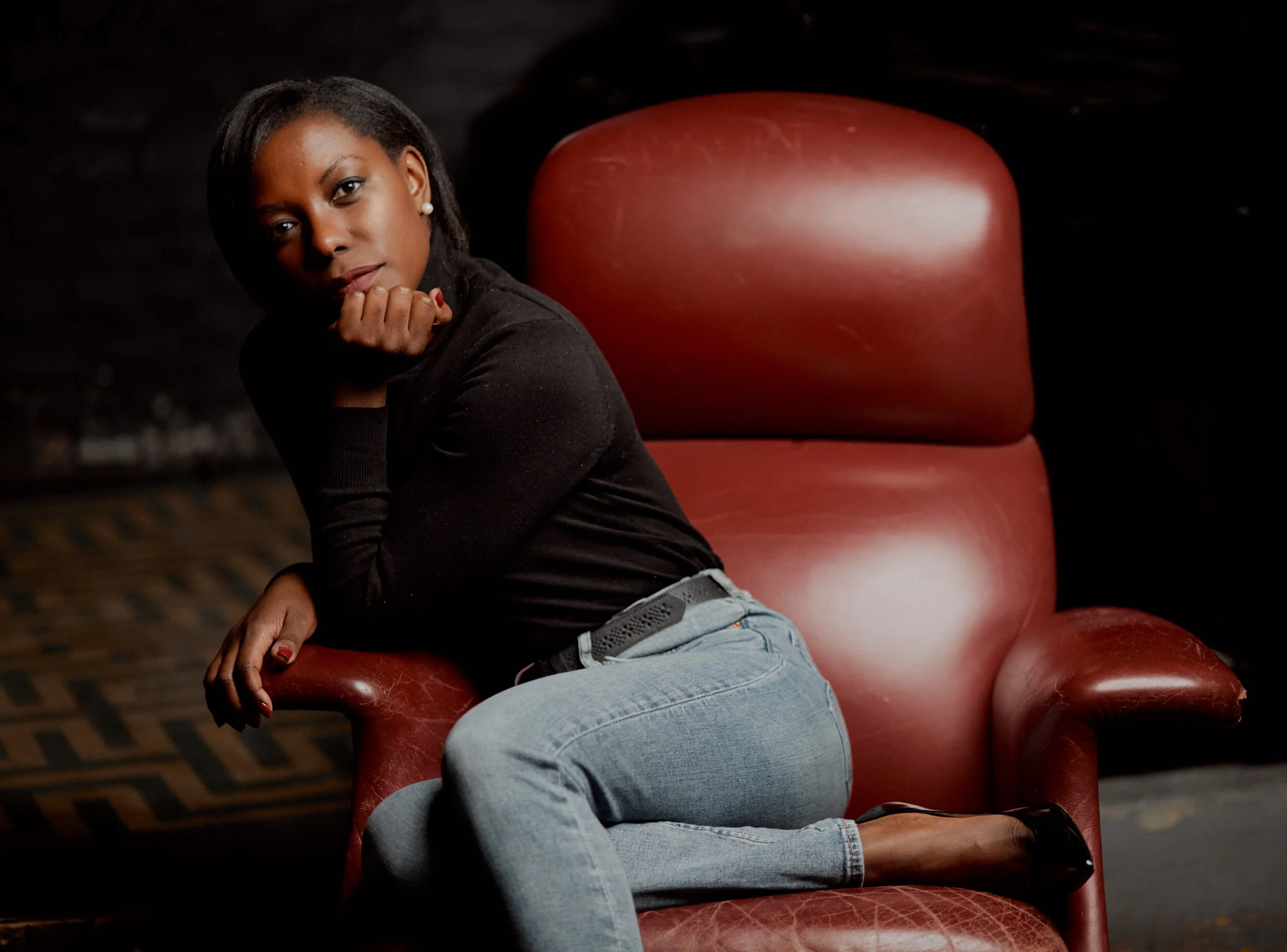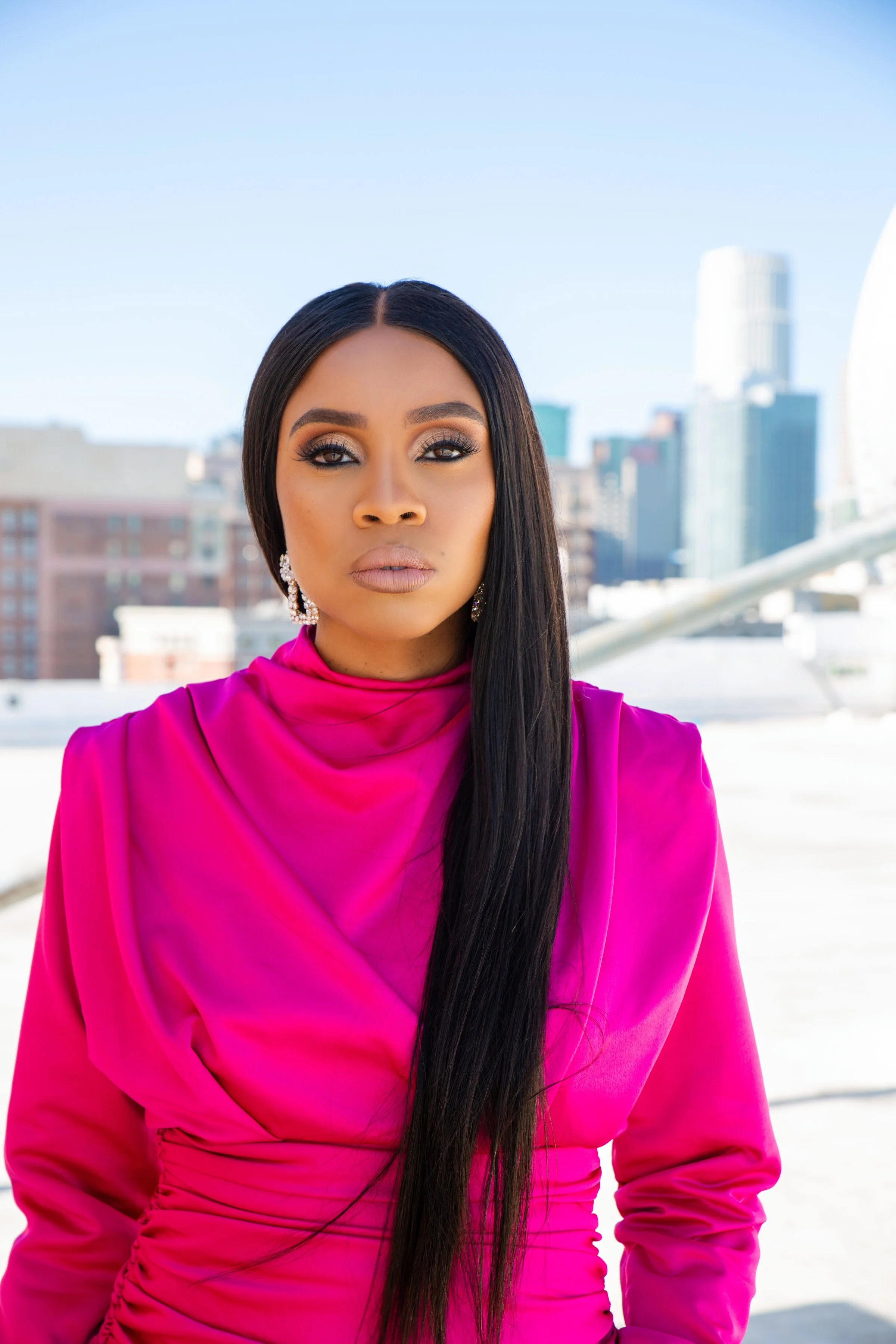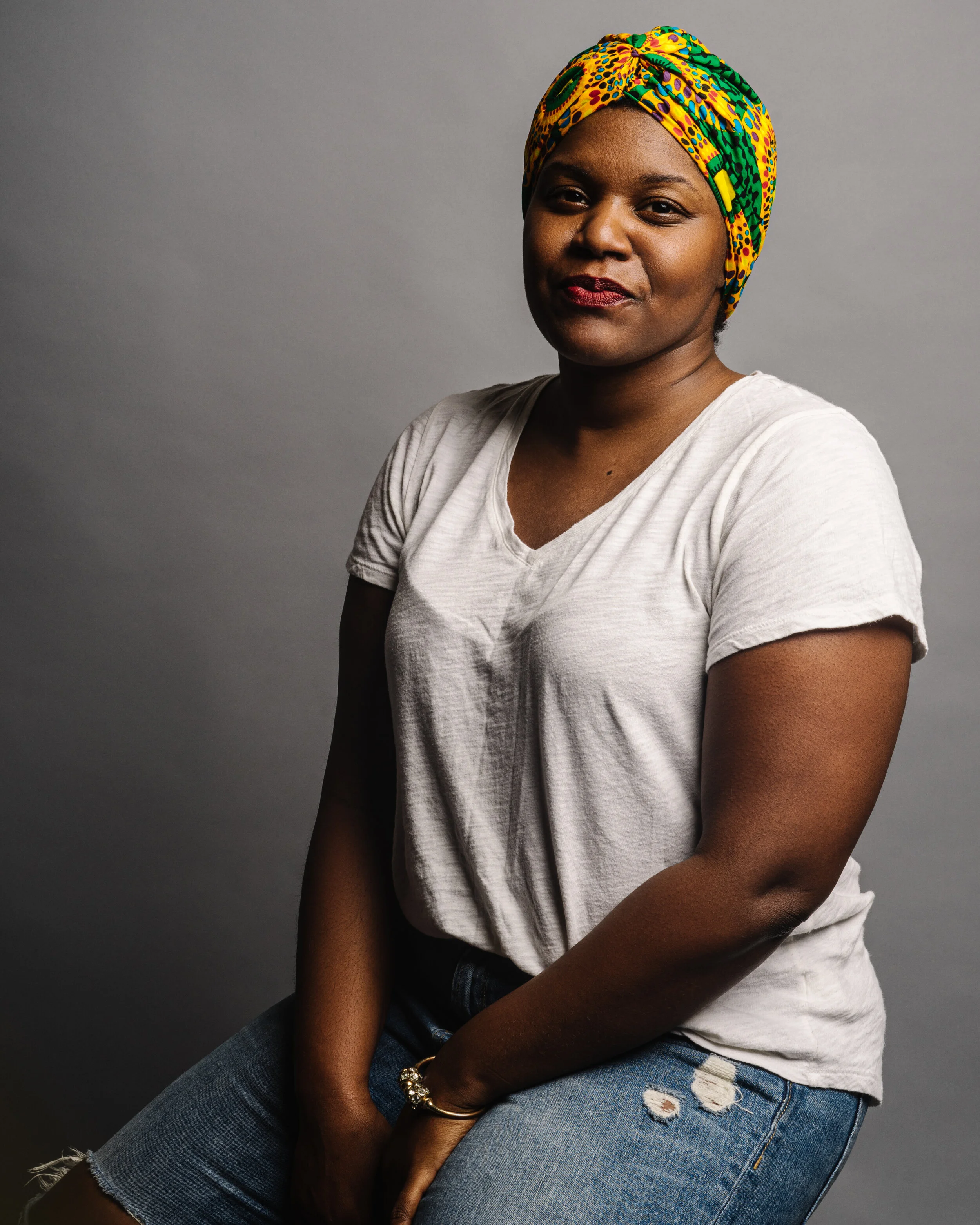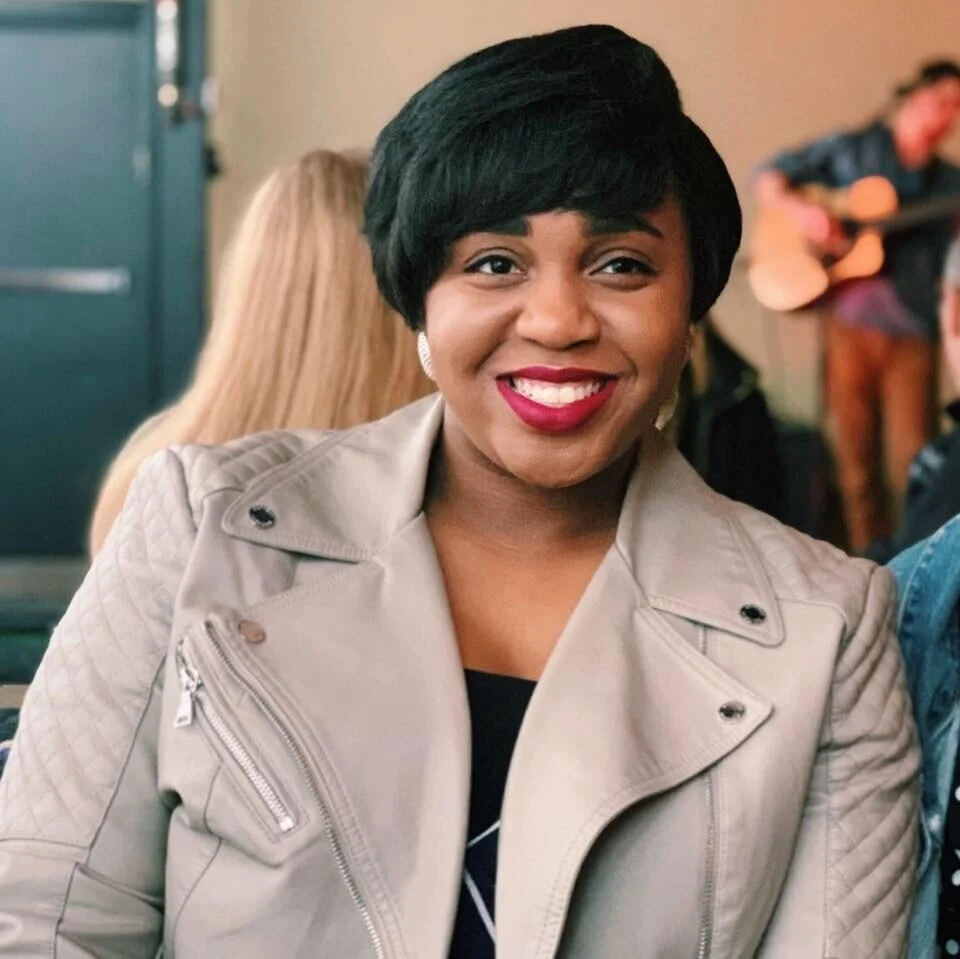Joan Erakit, Founder & CEO, RELATE
Hi, Joan! Can you tell me what you do?
I am a writer by trade and profession. Writing is the love of my life. It’s the one thing I can do for as long as anyone asks me to do it. It’s the thing I can do for free if I have to. I started writing many years ago, though I didn’t study journalism or writing in college. I actually studied anthropology, and writing became a thing that took over my life. Years later, I find myself launching a media company rooted in my passion for storytelling. So, at the core of everything, language, stories, and narratives are really who I am and what I do.
How did you come to the realization that you could make something that is your natural gift or passion into a profession?
It didn’t really happen naturally. I think I have always been an individual who believes that if you’re a service-oriented person, then your gifts and your talents kind of come through in that work. I had a group of girls that I mentored who asked me, “How do I know what I’m good at? How do I know what I’m supposed to do in life?” I always think that it’s a two-part answer. First, you have to let yourself experience life and interact with different people. Through those experiences and interactions, the things you love will emerge. Second, find a way to be of service. I think writing and storytelling came to me because I have a passion for people and a Iove of listening to other people’s stories. I also understand not everyone has a knack for stringing sentences together or a confidence in their writing ability, so I appreciate being able to help them to share their stories.
I have always found that people would come to me and tell me about themselves. In 2009, I started a blog called The Brown Girl File when I moved to Paris for a year in 2009. I wanted to create a blog so that my family could follow what I was doing while abroad. Also, it was really a space for me to tell stories that people told me, resharing their stories with their permission. From there, my writing grew from my blog, to pitching to local magazines in the Twin Cities where my family is from, and I started writing for newspapers and for weekly programs. Every step just moved me to the next, and the next, you know? As I shared, I never had formal journalism training, but I ultimately moved to New York to be a journalist. The thing that drove me in all of those decisions, though, was my passion for people and wanting to be of service.
Can you share more about your fellowship with Vital Voices?
Sure. Let me back up a bit first. I moved to Italy in 2017 to write a book. I ended up teaching storytelling at a private university for a bit, then I started a project called Open Borders. Open Borders was a storytelling workshop for migrants and refugees, making the space for them to tell their own stories, rather than from a more traditional journalism approach where you’re asking things like why are you here, what’s going on—this very specific line of questioning. I wanted them to be able to own their narrative and journey.
In 2019, I won a fellowship in a leadership incubator with Vital Voices and their partner, TRESemmé, to continue to develop Open Borders. It’s been an incredible ride, and the fellowship is still going as we speak. It includes thirty women from across the United States who are all badass and passionate, and doing incredible things. It’s a super diverse group of women. Vital Voices and TRESemmé are really there to help us develop our leadership journeys, and to help us prepare and advance on our respective projects, or to plan things we’d like to do in the future. We participate in trainings, business classes, and we receive mentorship. Plus, we get the support of our cohort. Being part of a group of thirty amazing women building and growing their projects is the most inspiring thing I’ve ever been a part of in my life.
That sounds incredible. I didn’t realize you have done so much traveling. Has that been intentional, or was it just one opportunity leading to the next that happened to take you around the globe?
It’s a little bit of a two-parter. I was born in Kenya. There is a village saying, which is that the way someone is born is the way they’ll live their lives. I was born on the road. There was a coup the night I was born, and my parents were traveling between two countries, so I was born in a hospital just across the border. So that’s the way my life started, and I feel that as an adult, I was out the door the minute I turned 18 and could get a hold of my passport and ID. (laughs)
My first trip ever was right after I graduated college. I basically ran away to California to live with this professional skateboarder that I had a huge crush on. We met when he was on tour. I was crazy. (laughs) Since then, I just had this absolute love for travel, and I have been very lucky to work with the United Nations, and to travel the world, and to go on missions with them. And, of course, I have had my own travels. I’ve definitely spent a huge amount of my adult life on flights.
I love that your career has such an interesting, nontraditional backstory. So how has Vital Voices helped you in moving from Open Borders to launching your own digital media company, RELATE?
The project Open Borders that I started in Italy was my first project supporting refugees. Through my fellowship with Vital Voices, I had a workshop session in New York last year with Vital Voices and TRESemmé. It was one of the most intense developmental opportunities I’ve ever had in my life. We worked with a professional communications team to discuss pitching, we worked on business plans and strategies. Through that workshop, I came to the realization that the strategy and business model I had for Open Borders wasn’t really working. With the support and advice of the mentorship provided through the program, I was able to pivot my project and my company and relaunch it as RELATE. I’m really excited about it.
I’m excited for it, too, and I would love for you to share more about it. How has the launch process been, and what impact are you seeking to have?
RELATE is a digital media company and we really exist to curate and publish stories that share the lives of not just migrants and refugees, but every single person in the world. The migration crisis affects everyone, regardless of their race, gender, citizenship, or geography. I think by starting a media company where we share stories from across the world, and with so many different people interacting with the topic of migration in this beautiful, visual way, we are able to spark action toward finding a solution to the migration crisis. RELATE operates with the perspective that in reading the story of an amazing human allows you to empathize with their situation. We are working with different photographers and writers from around the globe. It’s an interesting and diverse media company with a different take on how to tell stories in the digital age.
That’s such an incredible purpose and intention. Let’s back up a bit because you’ve done a lot of really entrepreneurial things in your career. I think that often we talk about entrepreneurship, we automatically think of business and finance. While there is always that aspect in any new business, I’m curious to know how you came into the mindset of starting your own media company?
It’s funny you say that, because I’ve always been the type of person who loved to work for companies. Before I started RELATE, I was in New York City, working for companies and organizations I believed in, still trying to be of service. I think that when I moved to Italy, my life changed in a lot of ways. Something inside of me changed and my mindset shifted. I realized that I had always sought the validation and permission from the institutions and companies I worked for to tell me that I was good at what I did, that I was useful, and that I had a purpose. Ultimately I realized that there were things I wanted to accomplish that I would have to innovate myself, and I needed to lead instead of follow. So I decided there was no other way to accomplish my goals if I wasn’t going to be the person pushing those goals forward. Which is a scary thing to realize and to act on when you’ve always worked for others, and you’ve always had someone else telling you what you should be doing. But once it hit, it stuck.
As you prepared to stand everything up, were there people you went to for advice? What was it like to say to someone, “Here is what I’m trying to do, this is my vision, can you help me?”
I’ve always tried to be a completely straightforward person when it comes to my vision and goals. I consider myself to be incredibly ambitious. Even in service of others, I had my own goals. I’ve also been good at developing relationships with important and influential people, and I have been able to keep those relationships authentic. I didn’t really ask for anything of them over the years, because I knew what I wanted to do as a writer, and those people followed my work and knew me as a writer. Even though they saw me doing other things, they always reminded me that writing is my passion. So when I was starting to conceptualize and build out the idea for RELATE, I instantly felt like I could go to them.
I was extremely intentional. I made a list of ten influential people I came across in my career, who they were, the interactions we had. I went through the list and contacted them separately, and I told them: here’s where I’m at, here’s what I want to do. I asked them for their support, advice—anything that would help me push through. I pretty much got a 100 percent response rate, in different ways, or course. They’re all very busy and traveling or whatever, but all of them were able to connect me with someone, give me a piece of advice on conducting business in a different country, give me the name of a mentor or someone I should be in contact with, share advice on how to fundraise or how to put business plans together. Being part of Vital Voices, that has kind of opened that network even further. So I just really believe in that model of being clear and authentic, then making a direct ask. I know that’s difficult for a lot of people to do that when they are starting their own project, but I think you have nothing to lose.
What has been the hardest part of launching your own company?
One of the most challenging things about launching this company has been launching it during a global pandemic. Like millions of people around the world who are struggling, I’ve been struggling a lot, particularly with my mental health. It’s difficult to balance your ambitions and be of service when you feel like you’re falling apart, and I’m working to reconcile that reality so I can get up each day and keep pushing my project forward. Fortunately I’ve been able to get professional help, and I have a lot of support between my family and partner, my colleagues and my teammates. And my fellowship has been amazing. They have really created a space for women to be authentic and share what’s going on in their lives. I appreciate that they prioritize mental health, and that they are supporting female leaders professionally but also personally.
I don’t think I will always feel like this. I know it’s not a fixed state. It’s just a day-by-day process that can make things harder because I’m not feeling like my best self. So that has been challenging so I think that's why just being able to launch it has really been a labor of love, and I'm so excited because it’s been quite a process.
I appreciate you sharing that aspect of your experience. Pivoting a bit for my final question, how do you think you’ve grown in your leadership over the years? Are there new things you’ve learned about yourself?
There are two things that have been true for me in my leadership journey and that I have been meditating on. One is that I think I’ve learned to trust myself and my voice as a leader. I trust in my vision for my projects, instead of going outward and asking other people what they think I should do. I’m in a position where I feel like I have the experience and I’ve done the legwork so if I feel my decision is the right one, then that’s what we’re going to do. And it’s two-fold, because if it doest work, I will take 100 percent responsibility for it.
That leads me to the second thing I have learned, which is taking responsibility for my actions and my business decisions, and learning to accept my mistakes. Being able to look back and acknowledge that, OK, that was a shitty decision I shouldn’t have made, and it had an impact. But then coming behind that and taking responsibility for it—figuring out how to fix it and learn from it. Those two realizations have made me feel extremely seasoned, and have provided the greatest lessons of my leadership journey.




